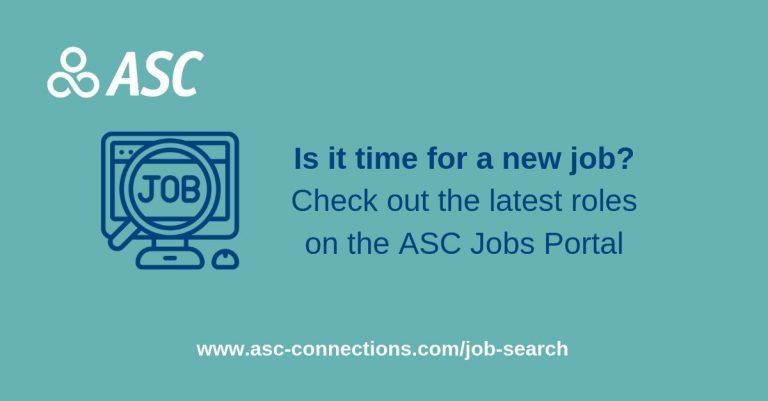How to pass an assessment centre
Have you been asked to attend an assessment centre as part of the hiring process? Are you wondering what to expect and how to pass an assessment centre?
As a recruitment company, we regularly organise assessment centres for candidates to attend on behalf of our clients. This has given us a real understanding of what employers look for and we want to help you understand how to pass an assessment centre.
Before we jump into that, let’s look at what assessment centres are and what you can expect when you attend one.
What is an assessment centre?
Assessment centres are a way for employers to assess the skills they may not be able to in a one to one interview.
For example, skills like teamwork, negotiation and initiative that may be required for the role are easier for you to showcase in an assessment centre.
How does an assessment centre work?
An assessment centre is where a group of candidates will usually spend half a day to a day undertaking various exercises that will test skills, knowledge and behaviours required for a role. The type of exercises will depend on the role but expect some or all of the following:

- Group exercises
- Individual written tests
- Role plays
- Presentations
- Individual exercise related to the role (i.e. develop a piece of code if you were applying for a developer role)
- Aptitude and personality tests
- Interviews
Each exercise or test will have been prepared well in advance by the employer and will have a total score. Each assessor on the day will have been trained in how to mark candidates on their behaviour, knowledge and skills to ensure it is fair.
The number of candidates who attend an assessment centre depends on the amount and type of roles available. However, in our experience, groups are no more than 15 people and are likely to be 6-8.
The assessment centre will most likely be held at the place where you’ll be working. It may be held at a different location if the company has various offices/depots or it’s a large group of people.
Assessment centre structure
Each employer will vary in the way they conduct their assessment centre and the type of exercises they run. Below is a guide to what a typical assessment centre will involve:
- Arrival of candidates
- Introduction to the day, the company and the people running the assessment centre (if it is for one role, they may go into more detail about the role too)
- Ice breaker exercise
- Exercise 1
- Break
- Exercise 2
- Lunch
- Exercise 3
- Closing comments
How to pass an assessment centre
Here we want to give you the ultimate tips on how to pass an assessment centre with flying colours and be the best you can be!

Prepare yourself
Ever heard the expression failing to prepare is preparing to fail? Good advice for life in general but right at this moment, if you don’t prepare for your assessment centre, you’ll be setting yourself up to fall behind other candidates who have.
How can you prepare?
In the weeks/days before your assessment centre do as much as you can to ensure you are up to date with the role you’re applying for, the company, the location and timings.
Find out where the assessment day is taking place and work out how you will get there and how long it will take. If you are driving, is there any parking on site or will you have to find your own? If so, where is the nearest parking and how long will it take you to then walk to the premises? Likewise, if you need to catch public transport, how far away is it, do you need to catch 2 buses or trains or a taxi?
Once you know all of this, we would advise doing a dry run to get a feel for the route and how busy it gets. These might sound like small things but knowing this in advance means you won’t be panicking on the day and will be prepared mentally.
Have you done your research?
Visit their website and social media channels to understand more about their business, how they operate, updates on the business and what it’s like to work there.
Find out who will be attending the assessment centre from the company. Connect with them on LinkedIn and look at their own journey. Looking at their background and how they’ve progressed in the company will give you a good idea on career progression routes and the type of people they like to hire. Not only this, but you can put a face to the name which means you’ll be familiar when you meet them on the day.
Go back through the role and make a note of the key skills they are looking for. You can then work on demonstrating these during the exercises. For example, if you know they are looking for persuasion skills, instead of sitting back in a group exercise, put your point forward and use your persuasive skills to encourage people to agree with you.
First Impressions
First impressions count so always arrive 10-15 minutes early. Make sure you consider this when planning your routes and travel time.

Smile and be polite to everyone you meet. We know of candidates in the past who have been rude to reception staff. Although they scored very highly in the exercises, their unprofessionalism let them down. Lest to say, they did not get the job. Don’t make the same mistake!
If you are asked to select your own place, sit next to someone or if you are told where to sit and it is next to someone, make conversation. It will show you are confident and personable. Also, it may make you feel more comfortable when you are in the group exercises if you’ve already familiarised yourself with people.
Unsure of starting a conversation? Ask them their name, where they’ve travelled from, how was the journey to start with. The conversation will probably start flowing from here. After all, they are in the same position as you so will feel just as nervous as you do.
Showcase your Soft Skills
You will be assessed on most of your soft skills during group exercises. Soft skills include; communication, teamwork, negotiation, persuasion, listening, initiative, problem-solving, creativity, time management, leadership, interpersonal ability and work ethic.
To ensure you showcase your skills to their full potential, make sure you have a voice. Put your point forward. At the same time, listen. Listening is just as important. No company will hire a person who won’t listen to what they’ve been asked or take on board feedback about their work.
DO NOT ARGUE WITH PEOPLE! If someone does not agree with what you are saying, advise you can see their point of view but tactfully state why you disagree. Again, people who are aggressive will not be favoured. Aggressive people can negatively disrupt the workplace culture.
If you want to show leadership skills, ask those who have not contributed to get involved. If the group can’t decide, maybe offer the opportunity to put the options to the vote.
If you are timed on a task, make sure you keep to time. If in a group, maybe suggest completing certain bits of the task by a certain time so you don’t waste time.
Assessment doesn’t stop
Just because you’re on a break or lunch, the assessment doesn’t stop. The company will be looking to see how you interact with them and others in a more social setting. Instead of going off to check the latest WhatsApp message, get involved with conversations around you.
This is also your opportunity to make a bigger impression. Go and network with people from the company, it could be the difference between you and another candidate.
Here are some questions you could ask:
- How long have you worked here?
- What are the team like?
- Have you always worked in this role?
- What is the best thing about working here?
Extra Tips:

Dress to impress. Unless you are told to wear casual clothing, we always recommend going suited and booted. In other words, dress as if you were going to an interview.
Relax and be yourself. The assessors do not want you to fail and will do what they can to make you feel comfortable so you can be the real you.
will do what they can to make you feel comfortable so you can be the real you.
Ask questions if you don’t understand something.
Practice tests. If you know personality, aptitude or psychometric tests will be part of the day, practice these online beforehand so you know what to expect.
Avoid negativity and don’t be defensive. This may sound like I’m telling you to ‘suck eggs’ but we would suggest avoiding topics such as politics and religion as they can be very sensitive. You don’t want to create a perception of you that could ruin your chances of securing the job.
Believe in yourself! You would not have been selected if they didn’t think you had potential.
Finally, if the outcome wasn’t what you wanted, always see this as a positive. If you haven’t had feedback, ask for it and understand where you can improve for your next assessment centre.
It’s also worth remembering that just because you weren’t successful, it doesn’t mean they weren’t impressed. We’ve had candidates who have been offered other positions, had roles made for them and been called back weeks or even months later.
We hope that has given you a good idea on how to pass an assessment centre. If you are currently job searching, why not
send us your CV
and view our
jobs. You never know the next assessment centre you attend might be one of ours!


Rebecca Crowther is a Marketing Executive for ASC Connections. Her love for writing started when she was young. In her current role, she loves creating content to support candidates on their career journey and help clients hire talented individuals.
SHARE BLOG


